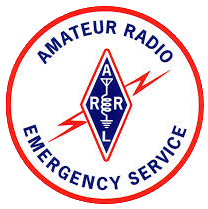Activation
- Details
We’ve discussed activation with regards to weather nets and the rules there apply here as well, but I would like for us to expand on them.
We normally initiate informal Weather Nets when severe conditions exist or warnings have been issued. Typically it is “Self-Activation”, because we know to switch to the repeater frequency to begin reporting any sighted conditions. However, everyone has a different idea of what is “severe”, so there is often no clarity of when to open an informal net or elevate to a higher level net. However, the process for the most part works for us and should continue.
Served agencies are another matter. We may not even be aware of a situation where our services may be needed or when. As a result, a more formal system is required. The formal system is also a portion of our Weather Net protocol.
The Activation system is initiated by the served agency. The served agency will have a primary and several backup contacts for initiating deployment. Once the served agency makes contact with any one of the activation liaisons the remainder of the process falls on our organization.
Five Myths About Net Control
- Details
Being net control is not what many people think it is. Net control is not all-powerful, nor particularly glamorous. It is, however, important to the smooth running of amateur radio operations during an exercise, special event, or actual emergency. That being said, on to the myths:
Various Roles In EMCOMM
- Details
During the past year we have discussed a variety of issues related to EMCOMM and the variety of missions available for Amateur Radio operators. We’ve even discussed non-emergency involvement in community events, field day, fox hunts, and balloon launches.
Recent discussions with various Amateur Radio operators has made me realize that I’ve not done a good job of discussing the various roles an amateur radio operator can play.
Everyone has different levels of knowledge, experience, skills, and even physical abilities that influence how and where they can, and should, participate.
Not everyone needs to be deployable to the hospital to be involved in EMCOMM, nor do they need to necessarily take all the FEMA courses previously discussed. Some will not want to take all the courses, others are not likely to be able to deploy in an emergency, and others may just not be interested in working in that environment. That’s okay, there are other ways to help. That being said, I want to continue to encourage those who are interested to take those courses and pass the FEMA certificates along to me. We’re still a few folks shy of the target number for the team.
Tanner/Carrollton Hospital As A Served Agency
- Details
Tanner Hospital in Carrollton is currently in the process of negotiating a Memorandum of Understanding (MOU) with ARES. Under this agreement ARES will coordinate the deployment of amateur radio operators to the hospital upon activation by the hospital’s emergency management staff.
Many of you are already ARES members. Those of you who are not please feel free to sign-up by clicking on the "Join ARES" link on the sidebar menu and filling out the form.
Just to be clear, ARES is an organization that operates interdependently of radio club leadership structure. That being said, there must be a cooperative effort between all radio clubs, amateur radio operators, and ARES. Many of us have been working hard to rebuild our working relationship with ARES and local served agencies like the county and local hospitals.
Special Events as EMCOMM Training
- Details
One of the problems with practice, courses, and training activities such as this, is the fact that theory fails the moment it meets reality. Even exercises suffer from the fact those planning the exercise are, well, planning. Preconceived ideas are brought to the exercise by the planner or planners.
Of course, the planned exercise usually suffers the same fate as every other plan, it too will show its flaws the moment it meets reality.
So, what do we do to improve our ability to refine our skills and deal with unexpected circumstances? There are several options. We can improve our skills by participating in special activities such as fox-hunting, balloon launch and tracking, and special events.
Tonight we’re going to discuss Special Events. Special Events are unique from the other mentioned activities because we are serving other organizations and people we may never have worked with before. As a result, the participants, routes, weather conditions, and unexpected emergencies will change from year to year.
So what are the similarities to an real EMCOMM event? Here are a few:
Page 10 of 12




